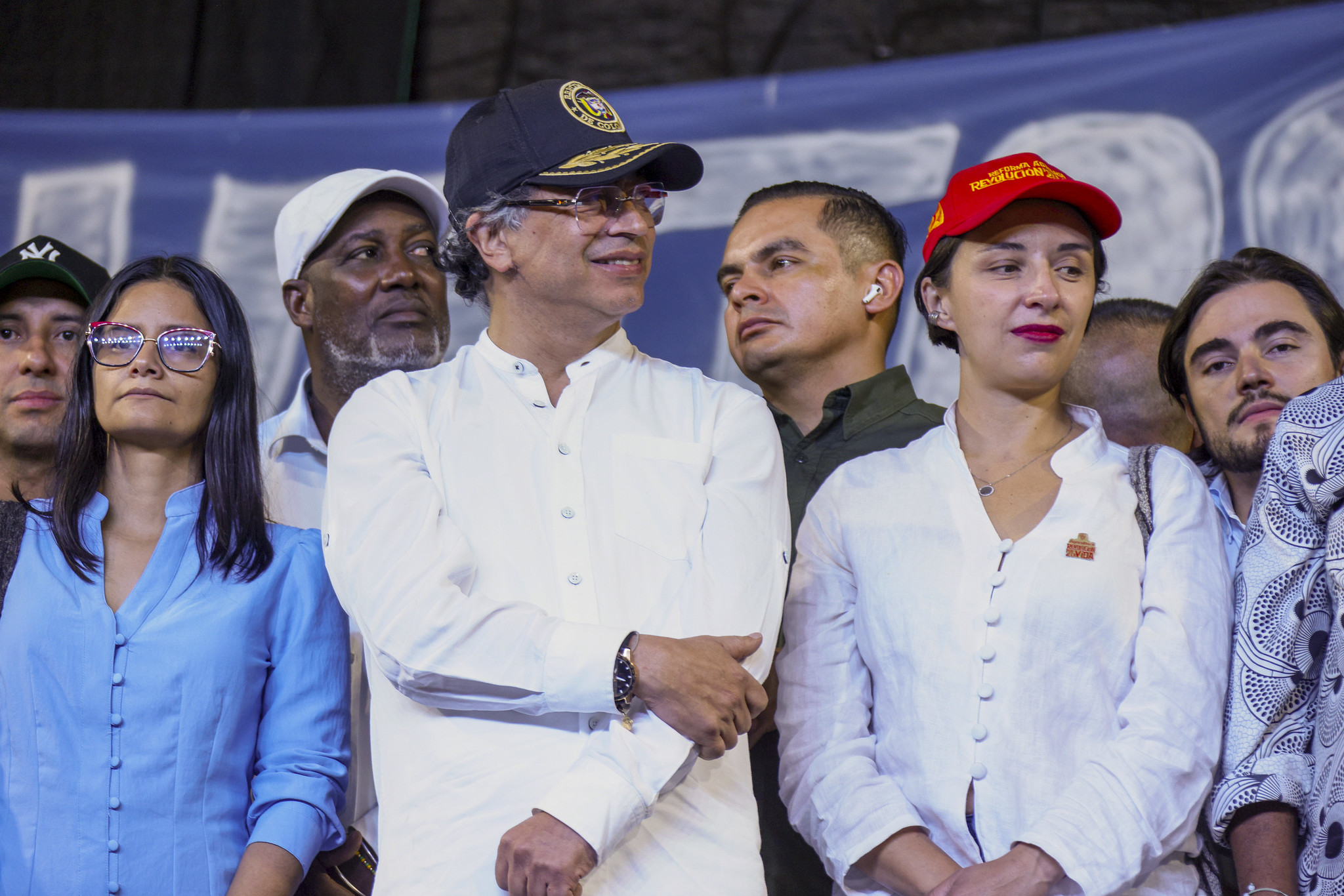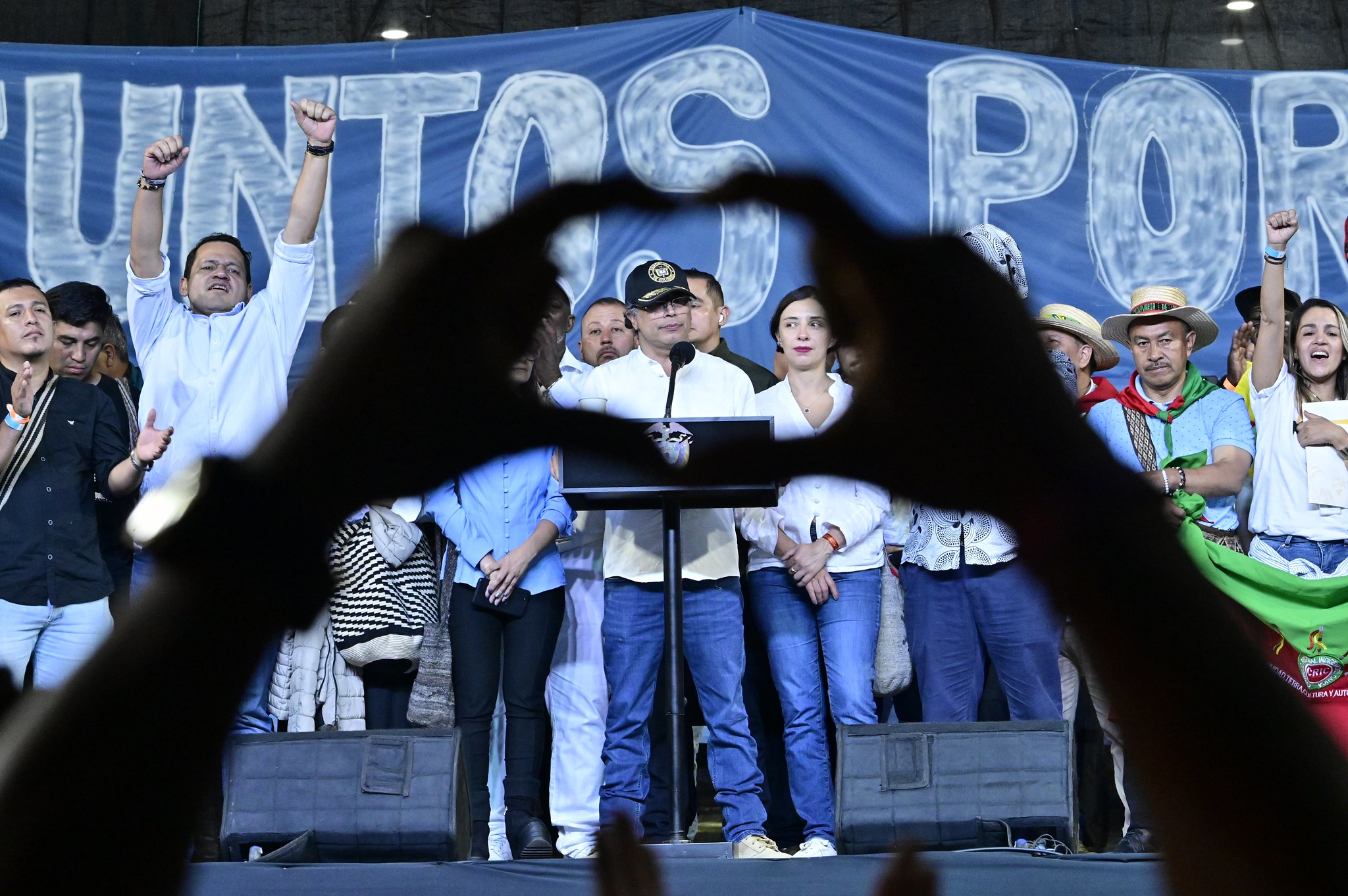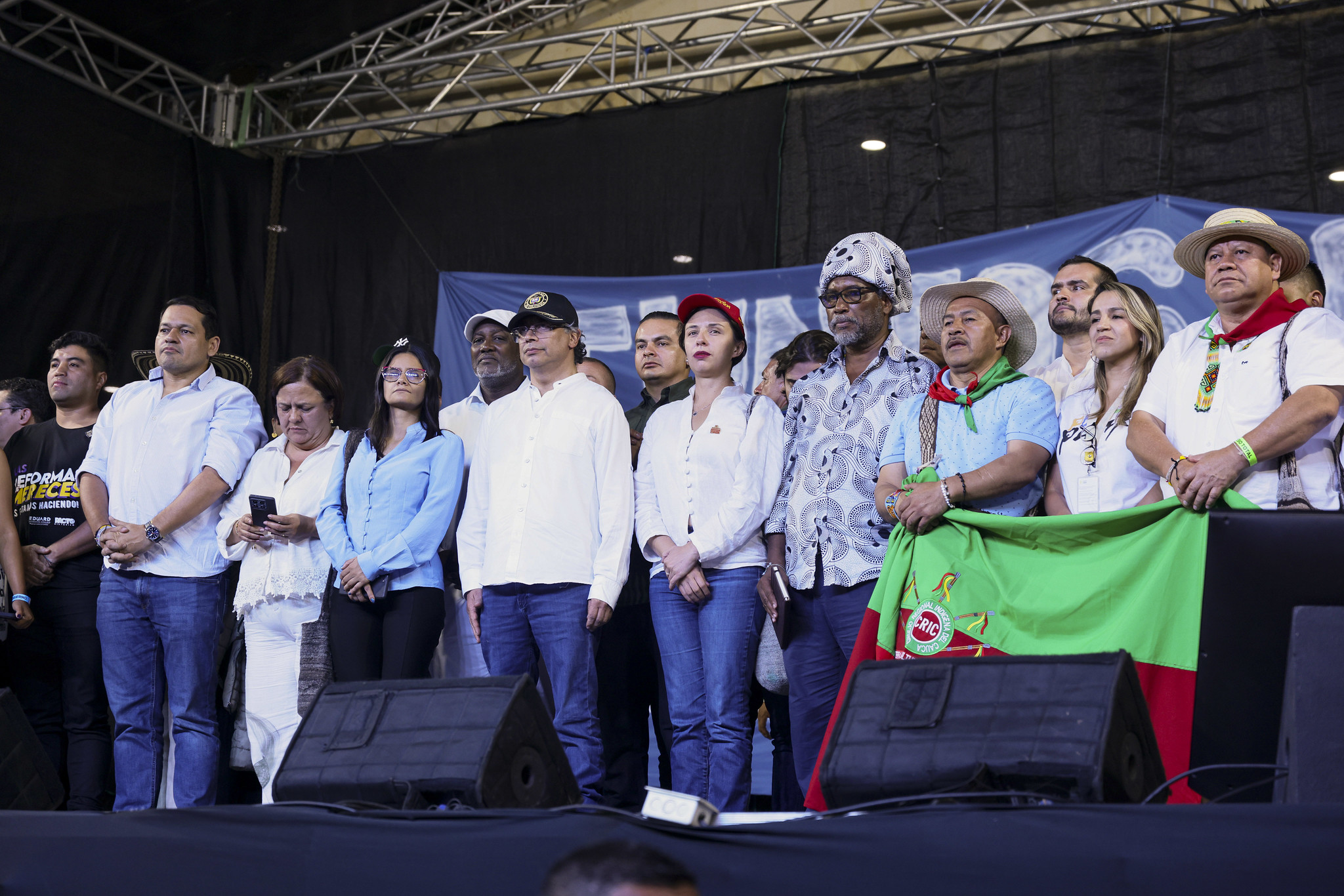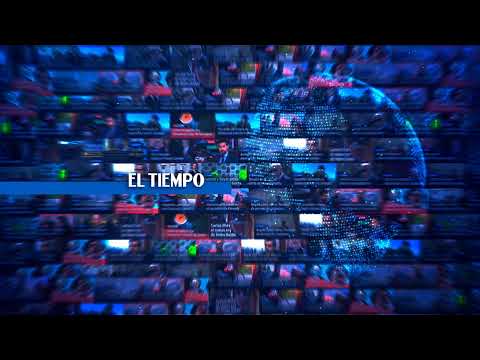President Gustavo Petro defends his "decree" with a controversial speech in Cali.

President Gustavo Petro broadcast his speech at the mobilization announced by the labor unions in Cali as a live address. In this message, he defended his "decree" calling for a referendum on labor reform. He asserted that it is in accordance with the Constitution and even threatened to seek a constituent assembly if both the call for referendum and the labor reform currently being processed in Congress are defeated.
Petro began his speech by mentioning Miguel Uribe, whom he singled out despite not sharing his political ideology. "He's struggling with life, and I hope life," said the Colombian president. He then spoke about Uribe's mother, Diana Turbay, and recalled that she was murdered by drug trafficking.

President Gustavo Petro at his rally in Cali. Photo: Presidency
"Let's observe a minute of silence for Senator Miguel Uribe Turbay and may he outlive his assassins," the president urged. At the end of the moment, he recalled the silent march called by Jorge Eliecer Gaitán and the murder of the Liberal leader.
The President referred to Senate President Efraín Cepeda, urging him to remember the violence that followed Gaitán's murder and called for action to prevent it.
He returned to the topic of the attack on Miguel Uribe and questioned whether he should be held responsible for this crime because of the tone of his speech or the tensions caused by the call for a referendum. "The culprit is not the people of Colombia or their president. The referendum is not a friend of murderers. Social inequality is a friend of murderers," Petro said.
In this regard, he said that the greatest security measure for the country is social justice, well-being, and care for minors: "It is the greatest security policy for peace." He used this point to frame his labor reform as a way to prevent crime in the country. He stated that if parents could bring more money home—with the labor reform surcharges—and spend more time with their children, the latter "would never pick up a gun."

President Gustavo Petro at his rally in Cali. Photo: Presidency
"It is not true that popular consultation and social justice are enemies of peace and friends of the murderers' violence," he added. In this regard, he reiterated that the only way to pacify the country is to "stop being unequal."
This served as a preamble to the section in which he defended the signing of the decree. At this point, he criticized the former presidents who said it was unconstitutional. "They've asked me to tone it down, and I promise to do so, but toning it down doesn't mean not telling the truth, remaining silent, or kneeling," he added in response to the former presidents. He also rejected those who have said that by signing the decree, the ministers are guilty of malfeasance.
Along the same lines, he criticized all the sectors that have warned that the decree is irregular. He asserted that it is complying with the 1991 Constitution's mandate that Colombia is a social state governed by the rule of law. "They speak of the concept of the 1886 Constitution, but not the 1991 Constitution. The rule of law is one in which officials comply with rules, but the social state of law is one in which officials obey reasonable rules that lead to building equity and social justice," he declared.
"The president has done nothing more than fulfill what was presented in his platform: reform the pension system to make it universal, reform the healthcare system to make it universal, and reform the labor system so that working people can live better," he added in his defense of the "decree."
President Petro criticized the governor of Antioquia for pushing his fiscal autonomy referendum, but he is being criticized for calling for a referendum.
He then questioned the Senate's labor reform text, focusing particularly on hourly contracts. Along these lines, he asked the Speaker of the House, Jaime Raúl Salamanca, not to back down on what was approved in his chamber. However, it's worth clarifying that this is not in Salamanca's hands; his job is to appoint conciliators, who are responsible for aligning the proposals with what comes out of the Senate.

President Gustavo Petro at his rally in Cali. Photo: Presidency
Petro spoke about the decision to repeal the decree calling for the referendum in the event that the labor reform is approved: "If that law doesn't pass like that, the referendum will continue." Along these lines, he noted that 227 proposals have been submitted in the Senate to modify the labor reform text. He acknowledged that congressmen have the right to do so, but clarified that in the meantime, his consultation will continue.
He also spoke about the possible review of the decree by the Constitutional Court. "I ask the Constitutional Court to be independent, and I will respect its decision. I can only ask that in its analysis, it consider that the third most unequal society in the world requires universal rights," the President said, in response to his argument that the review should be undertaken by the high court.
The president hinted that if they were to defeat the referendum and the labor reform, they would then proceed with a referendum to seek a constituent assembly. "What follows are 8 million signatures, an intense task, but the people have already decided and will not back down. And all the instruments that exist in Colombia, including the national constituent assembly, will be used because the only sovereign power holder is the people of Colombia," he said.
Although he clarified that he would not seek re-election with this constituent assembly: "I keep my word." He then added: "If they are prevented from expressing themselves, in the 2026 elections, they will not re-elect a person, but a project for change."
Other topics he talked about The Colombian president reiterated his claim that U.S. Secretary of State Marco Rubio is allegedly planning a coup d'état and asserted that he had even met with a Colombian far-right leader with the intention of carrying out such an action.
Likewise, at the end of his speech, he returned to the topic of the assassination attempt on Miguel Uribe's life and called for a UN International Commission to investigate the crime against him and other political leaders.
You can see: 
President Petro signed the decree for the referendum. Photo:
Juan Sebastian Lombo Delgado
eltiempo





